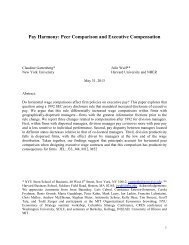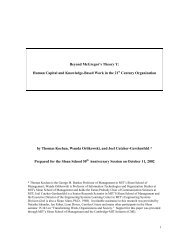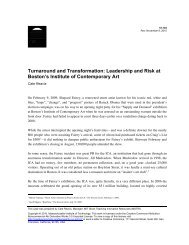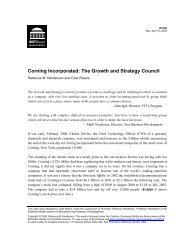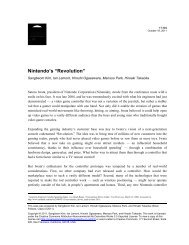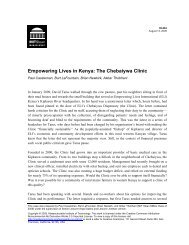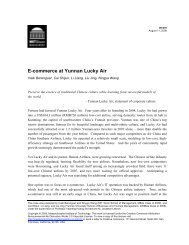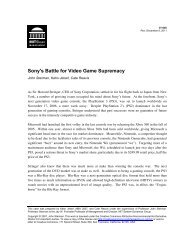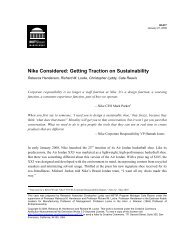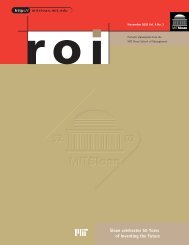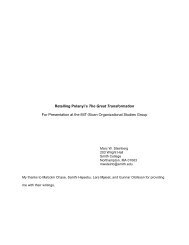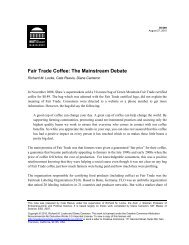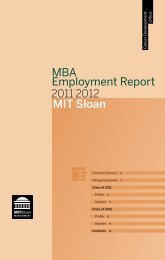Understanding earnings quality - MIT Sloan School of Management
Understanding earnings quality - MIT Sloan School of Management
Understanding earnings quality - MIT Sloan School of Management
Create successful ePaper yourself
Turn your PDF publications into a flip-book with our unique Google optimized e-Paper software.
for the AAER firm executives than for those <strong>of</strong> control firms. Erickson et al. (2006) and Armstrong<br />
et al. (2009), however, find no evidence <strong>of</strong> an association between equity-based incentive<br />
compensation and accounting manipulations.<br />
Balsam et al. (2003) find that discretionary accruals are lower prior to option grant dates,<br />
and the effect is stronger in settings in which the grant date is not predictable (Baker et al., 2003).<br />
Coles et al. (2006) examine discretionary accruals in quarters between the date <strong>of</strong> cancellation and<br />
subsequent reissue <strong>of</strong> options. Discretionary accruals are relatively income-decreasing leading up to<br />
the reissue. Likewise, McAnally et al. (2008) finds that firms intentionally miss <strong>earnings</strong> targets<br />
prior to known option grant dates, which reduces stock price (Skinner and <strong>Sloan</strong>, 2000), but that<br />
firms do not miss earning targets repeatedly in advance <strong>of</strong> grants.<br />
Insider trading: Beneish (1999) and Summers and Sweeney (1998) find that managers are more<br />
likely to sell their shares and redeem SARs during periods <strong>of</strong> overstated <strong>earnings</strong>, where these<br />
periods are identified ex post by AAERs. Beneish (1999) acknowledges that these are cases <strong>of</strong><br />
extreme <strong>earnings</strong> management and that his results might not be generalizable to periods <strong>of</strong> less<br />
extreme <strong>earnings</strong> management that nonetheless affects <strong>earnings</strong> <strong>quality</strong>. Darrough and Rangan<br />
(2005) find that insider selling is positively related to discretionary current accruals and negatively<br />
related to changes in R&D spending in the year <strong>of</strong> an IPO. They interpret both results as consistent<br />
with opportunistic <strong>earnings</strong> management.<br />
5.3.5 Managerial change<br />
Moore (1973), Pourciau (1993), and Geiger and North (2006) find evidence that incoming<br />
managers are more likely to exercise discretion in managing <strong>earnings</strong> (measured by abnormal<br />
and Shenoy, 2001; Yermack, 1997). A related line <strong>of</strong> research examines backdating, in which grant dates are<br />
retroactively assigned to historically low share prices (Heron and Lie, 2006, Narayanan et al., 2006).<br />
98



